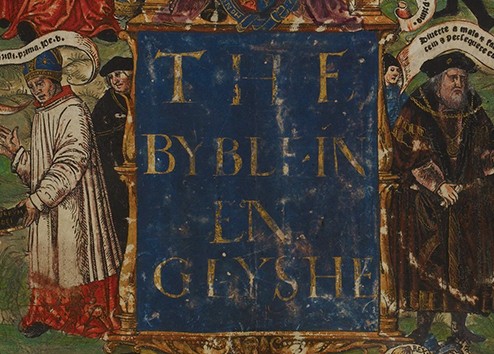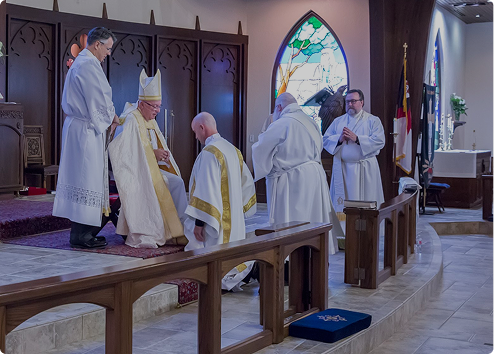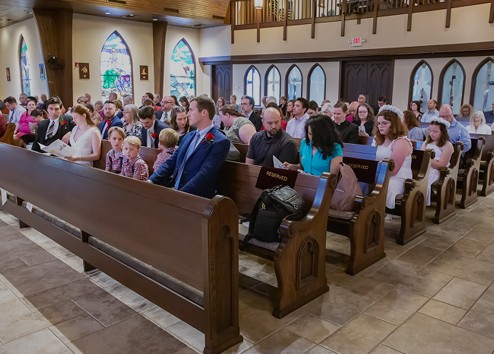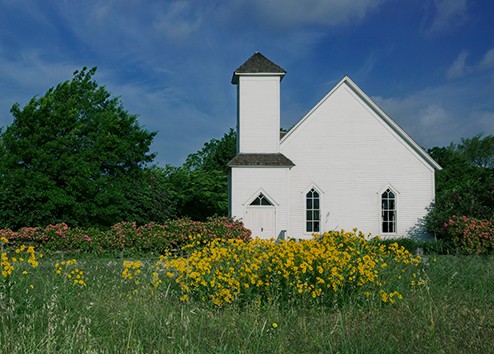
What We Believe
As disciples of our Lord Jesus Christ, Anglicans share with other Christians the historic biblical faith of the undivided Church of the first millennium. This is summed up by the words of St. Vincent of Lerins (445AD) when he said: “Moreover, in the Catholic (universal) Church itself, all possible care must be taken, that we hold that faith which has been believed everywhere, always, by all.”
Therefore, we as traditional Anglican Christians hold to the doctrines taught in the Bible and find our statements of belief in the historic Creeds (the Apostles’, Nicene, and Athanasian Creeds), the writings of the early Church Fathers, the Seven Ecumenical Councils of the Church, the Book of Common Prayer, which shapes our worship, the Thirty-Nine Articles of Religion and the Ordinal, locally adapted in conformity to the standards set in 1549.
Therefore, we as traditional Anglican Christians hold to the doctrines taught in the Bible and find our statements of belief in the historic Creeds (the Apostles’, Nicene, and Athanasian Creeds), the writings of the early Church Fathers, the Seven Ecumenical Councils of the Church, the Book of Common Prayer, which shapes our worship, the Thirty-Nine Articles of Religion and the Ordinal, locally adapted in conformity to the standards set in 1549.
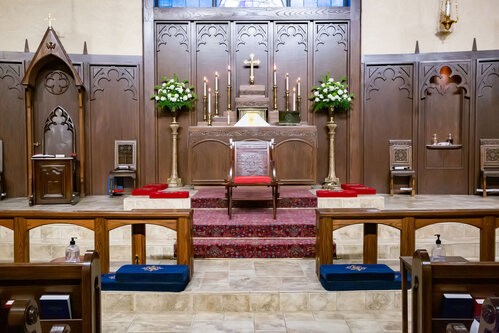
The Four Cornerstones

The Holy Scriptures
We accept the authority of the whole Bible over all aspects of our lives. It is truly for us “the Word of God written:” a source of guidance, inspiration, and strength. We do not presume to change the Bible. We pray it will change us!

Book of Common Prayer (1549-1928)
At Holy Communion we maintain but one form of worship, that of the authentic Book of Common Prayer. This ageless work not only provides the substance of our prayer and praise; it also contains key teachings, standards, and traditions as held by the Church throughout the 2,000 years of her existence.

Traditional Values
The Church of the Holy Communion maintains unapologetically the Ten Commandments as set forth in all parts of the Scriptures.
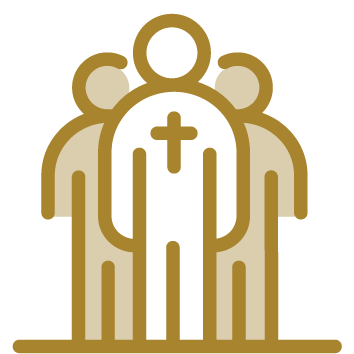
Sanctified Lives
Parishioners are admonished to consecrate themselves to God, to make Jesus Christ a living presence in their daily lives, to serve Him faithfully as dedicated disciples in a broken world, and thus find the peace, joy, and confidence which lies at the center of Christian Life.
Parish Principles
Prayer Book Unity
In accordance with the teaching of Scripture, the holy Traditions of the ancient and undivided Church, and the historic Prayer Book witness, this parish upholds the principle of the inter-relatedness of doctrine and worship. This understanding of lex orandi, lex credendi (that which we pray is also what we believe) teaches that if there is to be one common and uniting set of beliefs then there must also be one common and uniting worship.
We hold that the historic Book of Common Prayer (1549-1928), as clearly stated in the Preface to the first English Prayer Book, expresses this constituting Anglican principle, and that a return to Prayer Book obedience is the only practicable means of restoring unity to a broken communion.
We hold that the historic Book of Common Prayer (1549-1928), as clearly stated in the Preface to the first English Prayer Book, expresses this constituting Anglican principle, and that a return to Prayer Book obedience is the only practicable means of restoring unity to a broken communion.
Christian Sexual Standards
In accordance with the teaching of Scripture, the holy Traditions of the ancient and undivided Church, and the historic Prayer Book witness, this parish acknowledges sexuality to be one of the most powerful forces for good or evil in the lives of human beings, and that therefore the sexual relationship is intended by God to be confined to the safeguards of the covenant of marriage between a biological man and a biological woman. We celebrate the marital union between a biological man and a biological woman and accordingly maintain that sexual activity outside of that union, homosexual or heterosexual, is contrary to Biblical teaching and is intrinsically sinful. This parish adheres to the standard of chastity among its unmarried members and opposes any doctrine which would have the effect of endorsing liaisons not in accordance with historic Biblical standards.
Divorce
In accordance with the teaching of Scripture, the holy Traditions of the ancient and undivided Church, and the historic Prayer Book witness, this parish upholds marriage as intended by God to be a lifelong relationship, and is so obligated to teach its youth, those preparing for matrimony, and those whose marriages seem imperiled. Nevertheless, this parish also recognizes that the most sincere vows, whether those of ordination, monastic vocation, or marriage, will sometimes fail. In the ancient understanding of Eastern Orthodox Christianity, it may not be physical death alone that overtakes a marriage, but "spiritual death" as well. When a marriage has died, the Church must carefully and charitably weigh the eligibility of a divorced person to enter into a new covenant of marriage, not relying upon the casuistry of Annulment, but rather asking if a greater good might be realized out of the sin of divorce. Accordingly, the Rector will consider the remarriage of divorced people under the guidelines of Canon 34 of the Reformed Episcopal Church’s Constitution. The first requirement of the canon is that the Rector must submit a statement in writing to the bishop ordinary of the diocese as to the circumstances of a divorced person(s) desiring remarriage. The following provisions also apply:
- That one calendar year will have passed since the civil decree of divorcement.
- That documentation will accompany the application.
- That evidence of responsible behavior toward former spouse and any children of the marriage will be presented.
- That understanding of the reasons for the marriage’s failure have been achieved.
Termination of Life
In accordance with the Scriptural witness, this parish holds that life itself is God's possession, that the theology implicit in the Creation Narrative of Genesis delegates responsibility for life to human beings as a sacred trust under the aegis of the 6th Commandment, and that therefore life must not be willfully terminated save under the most urgent circumstances and for the most compelling reasons.
Ordination of Women
In accordance with the teaching of Scripture, the holy Traditions of the ancient and undivided Church, and the historic Prayer Book witness, this parish upholds the principle that it is God's will that the specific apostolic ministry of blessing, consecrating, and absolving is intended to be exercised by whole, biological males, baptized and confirmed persons who have been called to, trained for, and ordained into this holy vocation.
Denominational and Inter-Religious Relations
The Church of the Holy Communion Cathedral believes that unity among Christian believers should be actively pursued in the spirit of the Lord's high priestly prayer, “...that they all may be one,” and that opportunities of cooperative ministry should be sought wherever possible. Nevertheless, this parish maintains loyalty to its Anglican heritage and therefore holds as a basis for integral union the fundamentals set forth in the Chicago-Lambeth Quadrilateral (1886). We further believe that while relations with non- or quasi-religious bodies should be marked by respect, there can no compromise with the Lord's assertion: "I am the way, the truth, and the life." (John 14:6)
